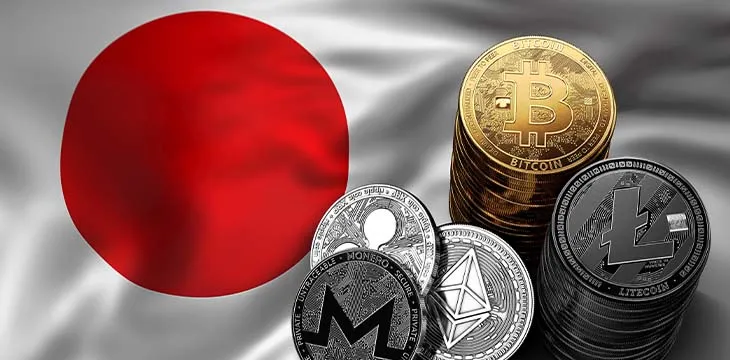|
Getting your Trinity Audio player ready...
|
Japan is planning new laws requiring digital asset exchanges to share customer information in a new attempt to combat money laundering. The new rules would bring digital assets under the umbrella of existing money transfer or “travel” rules that cover trades in existing national currencies.
Criminal penalties may be applied to exchange operators who fail to provide customer information such as names and addresses when performing transfers with other exchanges. Guidance and warnings would be sent before any penalty. The new law called the “Act on Prevention of Transfer of Criminal Proceeds” will take effect from May 2023.
Regulators in Japan are taking particular note of stablecoins. Unlike earlier digital assets like Bitcoin, stablecoins are designed for use mainly on exchanges, for traders to “park” value and make quick transfers between other exchanges and countries. The distribution of new stablecoins will be subject to registration as part of the country’s Fund Settlement Act.
There will also be amendments to the Foreign Exchange and Foreign Trade Act and the International Terrorist Asset-Freezing Act to add stablecoins to the list of regulated assets. This is also designed to prevent exchanges between Japan and countries under economic sanction, a list that currently includes certain activities in North Korea, Iran, and Russia. Japan is mainly concerned with funding transfers associated with nuclear development in North Korea and Iran.
Japan is bringing its laws covering digital assets into line with other major trading jurisdictions such as the U.S., EU countries, and Singapore. They are based on recommendations from the international Financial Action Task Force (FATF) in 2019, which sought to curb the use of digital assets to launder proceeds from illicit activities.
Bringing digital asset exchanges into line with existing laws
Over the past few years, governments worldwide have attempted to force the digital asset industry to behave more like the traditional financial system. Transfers between banks and FX exchanges are already heavily monitored under SWIFT and Japan’s own “Zengin” system for transfers, and those engaging in money laundering initially saw digital assets as a way around these regulations.
For a while, it worked—blockchain records may be permanent and public, but investigators have needed to devise new means to track money movements and unmask users. The sometimes ambiguous legal status of digital assets has also slowed the process. However, since exchanges often deal in large transfers and must interact with the traditional financial system eventually as users cash in/out, it’s easier for governments to bring them under the same regulations as existing platforms.
FATF published a report on “so-called stablecoins” in mid-2020, following a request from G20 group finance ministers. Other digital assets often deter those looking to transfer large amounts of money around the world unhindered due to their price volatility. However, stablecoins are designed not to fluctuate in value, making them essentially as useful as the fiat currencies they represent—so long as they’re able to maintain a price peg.
Some of these price pegs have proven notoriously shaky, mainly when their values are determined by trading algorithms rather than real assets (like the doomed LUNA) or by baskets of real assets where the exact contents of the basket are unknown (like Tether).
Recommended regulations for stablecoins are more concerned with tracking transfers rather than each coin’s backing or governance. This is because users maintain a certain trust in the value as long as it’s still working, and transfers in and out of stablecoins can be made in seconds. For regulators looking to prevent financial crimes, gambling traders losing their money is less important than investigating illicit activities in the real world.
Watch: The BSV Global Blockchain Convention panel, Tokenizing Assets & Securities on Blockchain

 07-13-2025
07-13-2025 





